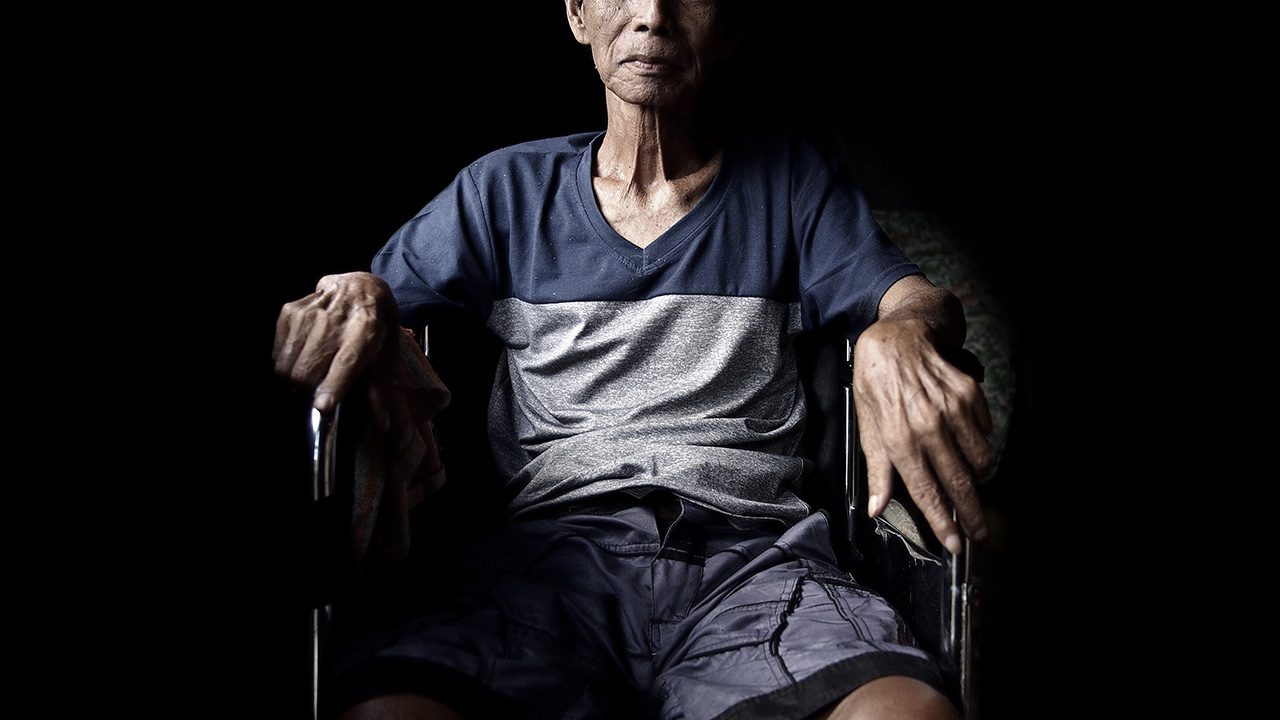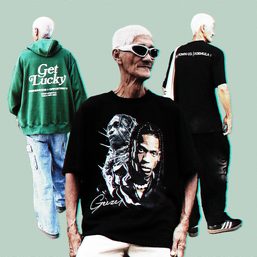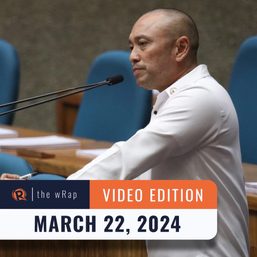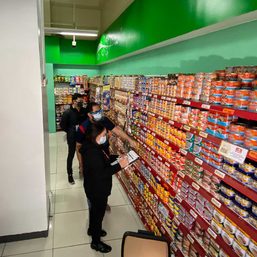SUMMARY
This is AI generated summarization, which may have errors. For context, always refer to the full article.

MANILA, Philippines – At the age of 68, Natalia Annie Paborada still chose to work despite limited employment opportunities due to old age.
“Gusto ko nga sweeper pa nga dati noong hirap na hirap ako. Ngayon, ang nag-assign sa amin nito [Antipolo] city hall kasi ang fast food lang ang pwedeng tumanggap sa mga senior,” Paborada said.
(I actually wanted to apply as a sweeper when I was struggling before. The Antipolo city hall assigned us here since fast food is the only one who accepts seniors.)
Accessible and inclusive work spaces are still a struggle for the country’s marginalized sectors, the elderly, and persons with disabilities (PWDs).
But some fast food chains and branches started to hire senior citizens and PWDs last year, which the Antipolo city hall posted on their Facebook page. Paborada was one of those who qualified to be temporarily employed for four months in the Jollibee branch of SM City Masinag.
It was 1983 when Paborada resigned as sales clerk in Rustan’s Department Store to be a housewife, but it was not hard for her to come back even after four decades of being out of the labor market, as she enjoys serving customers.
“Naalis talaga ‘yong lungkot ko sa bahay; nalilibang ako eh. Buti naman walang discrimination, dapat mangyari ‘yan dito sa Pilipinas talaga eh,” Paborada said.
(The feeling of sadness fades away since I am having fun. It’s a good thing that there is no discrimination, which should really happen here in the Philippines.)
For Paborada, her old age restricts her from applying for other fields, but says her physical body is never a hurdle even in the busy corners of Jollibee.
“Sa pakiramdam ko ang lakas-lakas ko pa eh. Malaking tulong din sa akin ‘yong sumusweldo ako kung minsan Php 2,800 o Php 2,900,” she said.
(I still feel very physically strong. It is also a big help for me to earn money from Php 2,800 or Php 2,900 sometimes.)
PWD staff
It’s important that businesses be open to hiring the elderly and PWDs. Coffee shops like Hisbeans Cafe in Quezon City takes it up a notch and only accepts individuals with disabilities as their staff.
“Sabi ko sa sarili ko na kahit PWD ako, kung ano ‘yong kaya nila sa normal, kaya din namin. Bilang may disability, kaya ko rin ibahagi sa kanila ‘yong skills ko,” said 30-year-old Aldian Aca-ac.
(I told myself that even though I am a PWD, I can do what normal people can do. As someone who has a disability, I can still share my skills with them.)
Aca-ac said they have training sessions to deal with customers.
But Aca-ac said there are days when he had to be more explicit in telling customers about his condition.
“Dati tinatakpan [tainga] ko pa kaya long hair ako dati eh. ‘Yong time na magtatrabaho na ako (…) syempre kailangan proper haircut, kaya nag lakas loob na lang ako i-cut,” he said.
(I used to cover my ears, which is why I have long hair before. When the time that I need to work and proper haircut is required, I muster up the courage to cut it.)
Gap
Patrick Bryan Ablaza, a Senior Deaf Advocacy Officer from Komisyon sa Wikang Filipino – Filipino Sign Language unit, said that there’s a “need to develop” available occupations for the elderly and disabled. Businesses must find ways for deaf workers to talk with clients and seniors who cannot do heavy tasks.
“Provide them with jobs appropriate for their abilities and give them equal pay. Make sure there are no barriers to hinder them from working well,” Ablaza said.
Despite these considerations, both Aca-ac and Paborada recognized these inclusive industries as a chance to equip their needs and fulfill their wants in life.
According to a study done by the Institute of Labor Studies, there’s a need for “stricter implementation of laws and policies pertaining to employment of PWDs.”
Authors Soledad De Luna-Narido and Miraluna Tacadao noted that the Magna Carta for the Disabled Persons “provides the rights and privileges of PWDs and their integration into the mainstream of the society.”
They cited that there are provisions “allotting a certain percentage of positions for PWDs in government organizations” and that “private employers are entitled to incentives to encourage active participation in promoting the welfare of PWDs.”
A PWD himself, Ablaza was “challenged” in accommodating buyers when he was part of the service industry. Although some tried hand gestures, others chose to talk with other employees.
“It is important to make sure that the PWDs and seniors can do the job well. Many see the deaf as inferior or have no skills, but they can do what hearing people do, except hear. With proper training, deaf people can be productive and contribute to the company’s goals,” Ablaza said.
The elderly have entitled benefits under the Expanded Senior Citizens Act, as well as hose who have hearing conditions under the Filipino Sign Language Act. – Julianne Loreign Vicente/Rappler.com
Julianne Loreign Vicente is a Rappler intern. She is studying BA Journalism at the University of Santo Tomas.
Add a comment
How does this make you feel?
![[Episodes] Option or obligation: Taking care of the people who took care of us](https://www.rappler.com/tachyon/2024/05/Option-or-obligation-Taking-care-of-the-people-who-took-care-of-us.jpg?resize=257%2C257&crop_strategy=attention)

![[OPINYON] Puting buhok at ang mapaminsalang ageism](https://www.rappler.com/tachyon/2024/03/IMHO-Ageism-March-11-2024.jpg?resize=257%2C257&crop=468px%2C0px%2C720px%2C720px)


There are no comments yet. Add your comment to start the conversation.